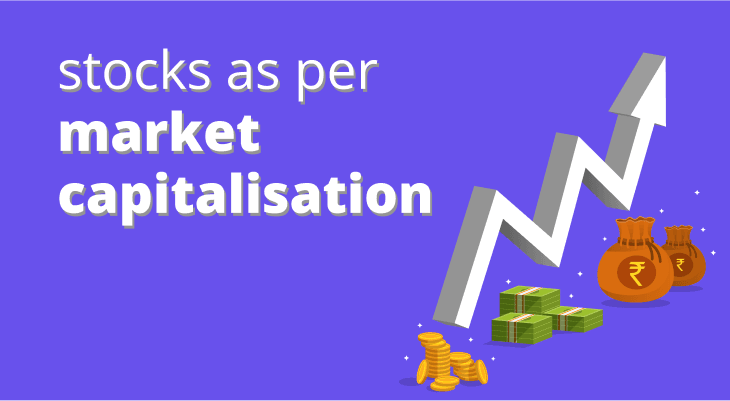
NSE vs. BSE: Difference Between the Bombay Stock Exchange and the National Stock Exchange
The Bombay Stock Exchange (BSE) and the National Stock Exchange (NSE) are the two premier stock exchanges in India. Although both exchanges function in a largely similar manner, there are quite a few differences between the two of them.
As an investor, it is crucial for you to be aware of the difference between BSE and NSE to be able to make well-informed trading and investment decisions. In this article, we’ll not only be delving into both of these stock exchanges individually but also draw a comparison between NSE vs. BSE to understand how they differ.
What is the Bombay Stock Exchange (BSE)?
Formally established in the year 1875, the Bombay Stock Exchange or BSE is headquartered in Dalal Street, Mumbai. It is the oldest stock exchange in not only India but also the whole of Asia. Furthermore, the BSE is also currently the largest exchange in the country In terms of the number of companies listed and total market capitalisation.
The Bombay Stock Exchange investors and other market participants to freely purchase and sell various financial instruments without any restrictions. Some of the financial instruments that are routinely traded on the exchange include equity shares, bonds, debentures, exchange-traded funds and derivative contracts like futures and options.
As of November 29, 2023, the Bombay Stock Exchange has around 5,287 companies listed on it, with the total market capitalisation of all of the listed companies touching an all-time high of USD 4 trillion.
Trading on the exchange happened primarily through the traditional open outcry system up until the introduction of the BSE Online-Trading System (BOLT) in 1995. Once BOLT was operational and adopted, the exchange slowly phased out the open outcry system and migrated completely to the fully electronic and automated trading and settlement system.
What is the National Stock Exchange (NSE)?
Now that you have an overview of the Bombay Stock Exchange, let’s briefly look at the history of the National Stock Exchange before moving on to the differences between NSE and BSE.
Established in 1992 by a collective of banks, insurance companies and other financial institutions, the National Stock Exchange or NSE is the other premier stock exchange in the country. Also headquartered in Mumbai, the NSE is India’s first-ever fully electronic and automated exchange. The launch of the exchange brought the advent of demat accounts, an electronic account used to digitally store financial instruments.
Just like the BSE, the National Stock Exchange also facilitates high-speed online trading of a plethora of financial instruments ranging from equity shares and debt instruments to exchange-traded funds and derivative contracts. The NSE has the unique distinction of being the largest stock exchange in the country in terms of the average daily trading volume (turnover).
As of March 31, 2023, there are around 2,137 companies listed on the National Stock Exchange, with the combined market cap of all of the listed entities inching closer to USD 3.03 trillion.
NSE vs. BSE: Differences Between the Two Exchanges
Coming to the differences between NSE and BSE, the table below outlines the various points where the two premier stock exchanges of India differ from one another.
Particulars | Bombay Stock Exchange | National Stock Exchange |
|---|---|---|
Established On | The BSE was established in 1875. | The National Stock Exchange was established only in 1992. |
Unique Distinction | The BSE has the unique distinction of being the oldest stock exchange in Asia. | The NSE has the unique distinction of being the first-ever fully automated electronic stock exchange in India. |
Number of Listed Entities | As of November 29, 2023, the BSE has around 5,287 companies listed on it. | As of March 31, 2023, around 2,137 companies are listed on the NSE. |
Total Market Capitalisation | The total market capitalisation of all of the listed entities on the BSE touched an all-time high of USD 4 trillion on November 29, 2023. | As of March 31, 2023, the total market capitalisation of all of the listed entities on the NSE stood at USD 3.03 trillion. |
Global Ranking | The BSE is ranked 10 in the list of the largest stock exchanges in the world. | The NSE is ranked 11 on the list of the largest stock exchanges in the world. |
Flagship Index | The flagship benchmark index of the BSE is the Sensex, which is a collection of the top 30 companies listed on the exchange in terms of market capitalisation. | The flagship benchmark index of the NSE is the Nifty50, which is a collection of the top 50 companies listed on the exchange in terms of market capitalisation. |
Trading Volume | The average daily turnover of the BSE was just Rs. 5,156.67 crores as of June 2023. | The average daily turnover of NSE was Rs. 67,491 crores as of June 2023, making it the largest exchange in India in terms of trading volume. |
Derivatives Market Share | The derivatives market share of the BSE is very low. | The NSE enjoys a significantly dominant position with respect to the derivatives market share. |
Dedicated SME Platform | The BSE SME is the dedicated platform for small and medium-sized enterprises. | The NSE Emerge is the dedicated platform for small and medium-sized enterprises. |
Conclusion
As the above comparison between NSE vs. BSE clearly shows, there are quite a few differences between the two exchanges. However, despite the differences, both of them work in a largely similar manner and have contributed significantly to the development of the Indian financial markets.
When it comes to the choice of an exchange, you may choose to trade on either one of them. However, there are a few things to keep in mind. For instance, if you’re into derivatives trading, the National Stock Exchange may be the better choice since the trading volumes are much higher and the chances of running into low liquidity are lower. On the other hand, quite a few companies are only listed on the Bombay Stock Exchange and not on the National Stock Exchange. In such cases, you have no other option but to trade on the BSE.


